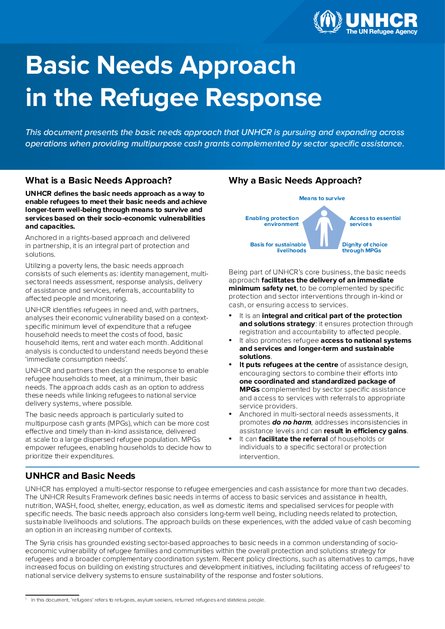
UNHCR defines the basic needs approach as a way to enable refugees to meet their basic needs and achieve longer-term well-being through means to survive and services based on their socio-economic vulnerabilities and capacities. Anchored in a rights-based approach and delivered in partnership, it is an integral part of protection and solutions.
Utilising a poverty lens, the basic needs approach consists of such elements as: identity management, multi-sectoral needs assessment, response analysis, delivery of assistance and services, referrals, accountability to affected people and monitoring. UNHCR identifies refugees in need and, with partners, analyses their economic vulnerability based on a context-specific minimum level of expenditure that a refugee household needs to meet the costs of food, basic household items, rent and water each month. Additional analysis is conducted to understand needs beyond these ‘immediate consumption needs’.
UNHCR and partners then design the response to enable refugee households to meet, at a minimum, their basic needs. The approach adds cash as an option to address these needs while linking refugees to national service delivery systems, where possible.
The basic needs approach is particularly suited to multipurpose cash grants (MPGs), which can be more cost effective and timely than in-kind assistance, delivered at scale to a large dispersed refugee population. MPGs empower refugees, enabling households to decide how to prioritise their expenditures.